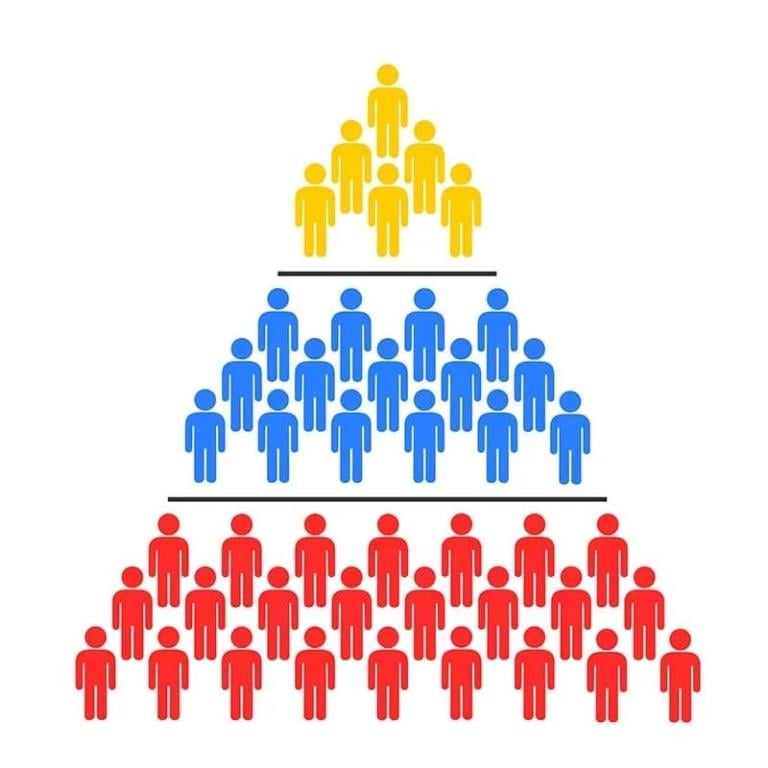As I explained in my previous post, I’ll draw from Cecilia Ridgeway’s on status, especially from her book Status: Why Is It Everywhere? Why Does It Matter?
This is the second article of the series. The first one asked. “What is status?” Today, we consider the question, “What good is status? What’s it do for us?” Next time, we’ll look at a few implications for the church.

For now, let’s begin with a quick refresher about what status is.
Status is a Fundamental Human Desire
In one interview, Ridgeway summarizes, “Status is basically the esteem that other people have for us, how we are seen by others, how we’re evaluated, the worth they attribute to us in the situation.” Status is the hierarchy that results from how we value (appraise) differences.
In her own words, she says,
“Status beliefs are widely held cultural beliefs that link a recognized social difference among actors with greater or lesser status-worthiness and competence” (69).
Also, status is distinct from power, which concerns one’s ability to control resources. By contrast, status reflects one’s social respect and thus the degree of persuasion on others’ thinking, decisions, and actions of others. We all know people who have power but not respect in our eyes.
We should also grasp how basic status is for human social existence. Ridgway summarizes the work of other scholars who contend that the desire for status is a fundamental human motive. She writes,
To be considered “fundamental,” they argue, status as a motive needs to meet four demanding criteria. First, the attainment of status (or lack thereof) needs to affect more than just temporary psychological functioning, like feeling up or down in the moment. It also has to have long-term accumulating effects on a person’s well-being–– their self-esteem, happiness, and even health. Second, the desire for status needs to motivate a wide range of behavior directed toward its pursuit or the avoidance of its loss. Third, status also needs to be an end goal in itself that is not fully reducible to some other motive or goal, such as belonging (the desire for human attachment), which is already widely acknowledged to be a basic human motive. Finally, the desire for status should be apparent across all human cultures. (p. 50)
As far as criteria go, this list is hard to argue with. As I plan to address in the next post, there’s plenty in Scripture that also suggests that the desire for status is a fundamental human motive.
Status is Practical
Status has both personal and social benefits.
Individual Advantages
Here are several advantages for individuals who hold higher social status.
- Access to Resources: People with higher social status often have better access to valuable resources like education, healthcare, and job opportunities.
- Social Influence: Individuals with higher status are more likely to have their opinions and decisions respected and considered important by others.
- Networks and Connections: Social status often leads to the formation of influential networks and connections, which can provide both professional and personal opportunities.
- Psychological Well-being: Higher social status is associated with a sense of belonging and self-worth, contributing to better mental health.
- Increased Agency: Individuals with higher status may experience more autonomy and control over their lives, as they often have more choices and opportunities available to them.
- Perceived Competence: People with higher status are often perceived as more competent and knowledgeable, even if those perceptions are not always accurate.
- Respect and Recognition: Higher social status generally garners more respect and recognition from others, leading to a sense of validation and importance.
- Reduced Stigma: Individuals with higher social status are less likely to experience negative stereotypes and stigmatization than those with lower status.
Group Benefits
What about benefits for groups?
Ridgeway explores how social status provides a framework for organizing and regulating interactions among individuals. Status hierarchies help establish expectations and norms for behavior, which leads to more predictable and stable social dynamics.
In the context of honor and shame dynamics, this might relate to how certain individuals or groups are accorded higher status due to their adherence to specific moral codes or behaviors, contributing to a sense of honor within the community.
Accordingly, status can serve as a constructive motivator. Ridgeway, “Status acts as a reward that incentivizes contributions to the collective effort, thereby addressing the motivation problem” (13). This is true whether we’re discussing moral or merely pragmatic concerns. “Esteem and influence are granted by group members in exchange for a recipient’s perceived value for the group effort” (13).
Ridgeway also discusses how social status contributes to the efficient distribution of resources and opportunities within society. Higher-status individuals often have greater access to resources, information, and influential networks. We simply can’t discern the quality of all the information we have at our disposal.
We depend on people with high status to help us identify what is useful and what is not. Likewise, when there are limited resources and opportunities, we want to select high-status individuals to gain access to those things so that they may use them to benefit the larger group.
Furthermore, her research emphasizes the role of social status in shaping collective identities and group cohesion. Communities often rally around shared values and norms associated with higher-status individuals or groups, fostering a sense of unity and belonging. This obviously has implications for the church (the subject of my next post).
In summary, status systems motivate cooperation and temper competitiveness. Status exists as a way of managing human relationships, to manage “cooperative interdependence to achieve collective goals in the face of competitive individual interests” (54).
Useful Hierarchies
Status is a way of managing this tension by providing a means for people to coordinate their efforts and establish hierarchies of value and worth. Status allows people to quickly form status hierarchies in real-time interactions, which can help to facilitate cooperation and coordination. For example, in our jobs, status helps to establish who is in charge and who has the authority to make decisions, which can streamline work processes and improve efficiency.
Moreover, status is a powerful motivating force for individuals and groups, as it provides a sense of purpose and meaning. People care about being seen as worthy and valued in the eyes of their group and society, which can inspire them to work towards achieving valued goals.
In this sense, status can be seen as a natural and inevitable part of human flourishing, as it provides a way for people to find meaning and purpose in their lives.
Again, this series is not assessing what status is or does in an idealized work. We need to understand how the world works in reality. With that in mind,
- What do you think about this analysis?
- Are we missing any major aspects of status?
Next week, we’ll discuss the role of status within the church. Feel free to share your thoughts now in anticipation of next week!














